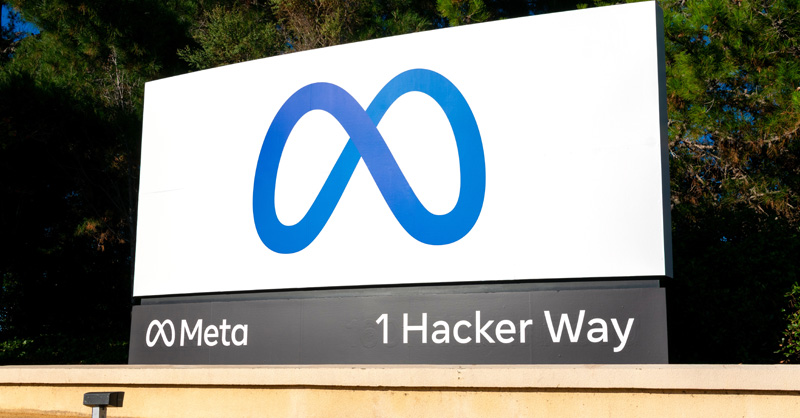Meta faces uphill battle in quashing UK Giphy decision
30 November 2021 15:01

Should Meta advance an appeal over the UK Competition and Markets Authority’s prohibition of its acquisition of Giphy, it faces an uphill battle in getting the decision quashed.
The country’s specialized competition court has only once overruled a CMA decision in full. But even this win was short-lived, after a block was reached a second time around.
Meta, formerly known as Facebook, has already twice challenged the antitrust agency in the courts on procedural issues and lost. Now it will be hoping it's third time lucky.
The CMA’s inquiry group — an independent panel of experts that examines deals during the in-depth stage — today ordered Meta to unwind its purchase of Giphy. The UK regulator found that the merger would reduce competition between social-media platforms, and the deal has already removed Giphy as a potential challenger in the display-advertising market.
At first glance, the final decision seemingly concluded the UK regulator and the tech giant’s long-running spat, which first began when the CMA’s merger intelligence team called the deal in for review in June 2020 — and ordered Giphy and Meta to stay separate.
Meta, which announced its purchase of Giphy in May 2020, said it planned to integrate the service into its photo-sharing app Instagram, and had not notified UK authorities of the deal.
Giphy lets users search for and share short, looping animated videos, typically in the GIF format, with half of its business coming from its products, mainly Instagram.
But Meta has indicated the battle is not over, with a spokesperson today saying it is "considering all options, including appeal."
An appeal by Meta would mark the third time the company has taken its concerns over the probe to the courts, having twice challenged the CMA’s refusal to grant exemptions from the terms of a freeze order.
But a challenge of the legitimacy of the antitrust enforcer’s merger decision raises the stakes considerably, and is even harder to win.
High bar for appeal
Under the rules of the UK’s specialist antitrust court, the Competition Appeal Tribunal, merging companies have four weeks to lodge an appeal after seeing the CMA’s decision.
The bar for appealing merger decisions in the UK is high, as the CAT is bound by a judicial review standard, meaning that a CMA decision will be allowed to stand unless it is shown to have been somehow illegal, irrational or procedurally flawed.
So far, only one company has managed to successfully overturn a CMA merger decision: JD Sports, but even the impact of this was limited.
Following a successful appeal, the CAT ruled in November 2020 that the CMA had acted irrationally in its review of JD Sports’ acquisition of Footasylum by failing to follow up on inquiries about the impact with Footasylum suppliers or its primary lender.
The tribunal quashed the CMA’s final report and sent it back for fresh consideration, deeming that the effects of Covid-19 should have been of "material importance" to its overall decision.
But, after redoing its investigation this year, the CMA ordered JD Sports to sell Footasylum for the second time this month. It found that despite increased competition from firms such as Nike and Adidas, and the impact of Covid-19, Footasylum would remain in good financial health.
Meta’s CMA criticism
Still, Meta has raised several criticisms about the regulator’s behavior during the probe, which range from terms under the enforcer’s freeze order, to questions about its jurisdiction.
The tech giant has long maintained that the CMA lacks jurisdiction to view the deal because it and Giphy do not compete in the UK, and there is "no overlap in relevant commercial activity giving rise to a competition concern."
In the summary of its final findings, the CMA’s inquiry group said jurisdiction was met under the share of supply test, which applies when the two parties involved supply or acquire at least 25 percent of the same goods or services in the UK, and the merger increases that share of supply.
The inquiry group said the deal passed the test because Meta and Giphy overlap in the supply of apps and websites that allow UK users to search for and share GIFs, in which the two companies have a combined share of 50 to 60 percent, based on average monthly searches.
Sabre v CMA established that the regulator can broadly apply the share-of-supply test and define the relevant commercial activity as it sees fit, so Meta faces a challenge in distinguishing its case.
More unusually, Meta has also raised serious concerns about the CMA’s conduct.
In a response published in October, the tech company accused the body of withholding critical information from it during its probe. It said this amounted to a "fundamental flaw" in the CMA’s investigation as it meant the regulator couldn’t get feedback on the information in question. Meta also said withholding the information denied the company the right to a fair hearing.
While details of what exactly was withheld are redacted, Meta suggested that the information had been known by the CMA throughout almost the entirety of its 15-month investigation, but it was only made available 13 days after the release of its provisional findings, following a disclosure request from the merging companies’ advisers, it claimed.
All to play for
There is certainly plenty for the courts to unpick should Meta advance an appeal.
The CMA’s full divestiture remedy, as it stands, will have a knock-on impact on probes taking place elsewhere — and is likely a factor that could make the appeal a worthwhile move.
Meta-Giphy is also under review in Australia, Austria and the US.
Related Articles
No results found
